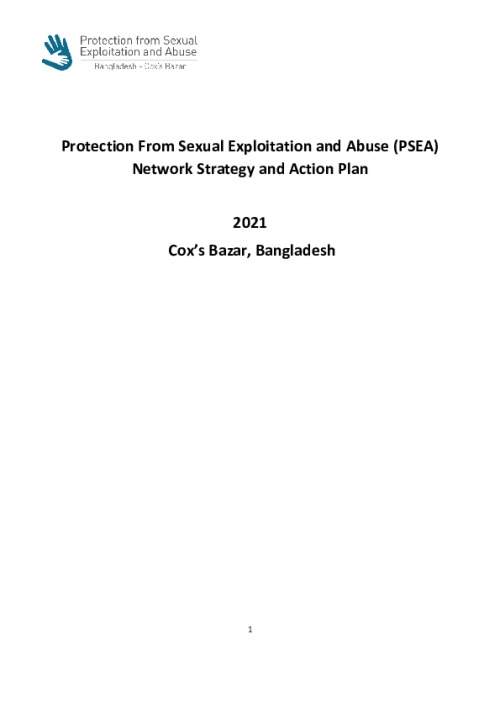
Cox's Bazar PSEA Strategy and Action Plan 2021
Sexual Exploitation and Abuse by humanitarian aid workers (SEA) can occur in any humanitarian or development context, and is a particular risk in emergency contexts characterized by violence, gross power imbalance, mass displacement, restricted access, and dismantled family and societal structures. Responding to the risks presented by the unprecedented volume of new arrivals added to the existing refugee population and the affected host population in Cox’s Bazar, and the massive deployment of staff to respond to the Rohingya refugee crisis, the UN Resident Coordinator for Bangladesh called upon the humanitarian community in October 2017 to establish an in-country Network to prevent and respond to SEA. One of the primary activities of the Cox’s Bazar ISCG PSEA Network (the “Network”) is to design a collective strategy to ensure that the humanitarian community enacts SEA prevention measures, provides timely assistance to survivors, and refers all allegations to the relevant investigation unit for follow up.